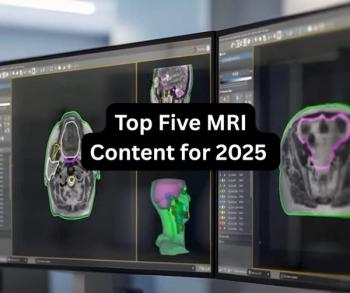
Scans show 38% of adults face higher heart attack risk
Unhealthy habits have increased the likelihood of catastrophic cardiovascular disease at a surprisingly early age for asymptomatic adults who referred themselves for multislice CT coronary artery calcium testing at the Arkansas Heart Hospital in Little Rock.
Unhealthy habits have increased the likelihood of catastrophic cardiovascular disease at a surprisingly early age for asymptomatic adults who referred themselves for multislice CT coronary artery calcium testing at the Arkansas Heart Hospital in Little Rock.
Lifestyle modifications, including healthier diet, more exercise, and smoking cessation, were recommended for nearly four of 10 subjects in a prospective study of 3198 adults who underwent coronary artery calcium tests at the hospital between 2000 and 2002, said University of Arkansas radiology resident Dr. Sharp Malak in a scientific presentation at the 2006 RSNA meeting. Measurable calcium accumulations, indicative of an elevated risk for heart attack, stroke, and other catastrophic cardiovascular events, were found in 56% of the CAC exams. The study was designed by radiology chair Dr. Ernest Ferris and conducted by Dr. Sanjaya Viswamitra, director of body MRI and cardiac imaging.
Overall, 18% of the subjects scored between 11 and 100 on the CAC scale, which earlier research has shown correlates with a doubling of risk compared with subjects who have scores of zero, Malak said. The 11% of patients who had CAC scores from 101 to 400 have a fivefold greater risk, and the 9% with scores over 400 are 15 times more likely to endure a major cardiac event than adults with scores of zero.
The median age of subjects was 52 years old, ranging from younger than 40 years to older than 70.
The results contradicted traditional assumptions about the cardiovascular health of men younger than age 45 and women younger than 55, Malak said. CAC scores of one or higher, suggesting at least a doubled risk for a future cardiac event, were reported for 41% of men younger than age 45. About 20% of these men were prescribed lifestyle modifications based on their CAC scores of 11 to 100. The need for nonsurgical intervention was even more evident for the 11% who scored between 101 and 400. Coronary angiography was prescribed for the 2% with scores over 400.
The story was similar for women younger than age 55. About 41% of these subjects also had calcium scores of one or higher. Nearly one of four received CAC scores of 11 or more, suggesting the need for lifestyle modifications. Eleven percent had scores that were greater than 101, placing them at moderately high or high risk of a cardiovascular event, Malak said.
Looking at traditional risk factors, only hyperlipidemia correlated with elevated CAC for men under age 45. For women younger than 55, statistical significance was established for elevated CAC and the presence of hyperlipidemia, hypertension, smoking, and diabetes.
"Our numbers on the whole are similar to other trials. The difference here is that we are the first to parse out these younger age groups," Malak said.
The results suggest that physicians generally have underestimated the number of younger women who should be prescribed treatments to reduce their risk of heart attack.
The trial also lends support for using both CAC testing and Framingham risk assessments to evaluate asymptomatic adults. The Framingham test reliably identifies high- and low-risk patients. Because of its high negative predictive value, CAC testing could help clarify the status of patients with intermediate Framingham scores.
Newsletter
Stay at the forefront of radiology with the Diagnostic Imaging newsletter, delivering the latest news, clinical insights, and imaging advancements for today’s radiologists.












